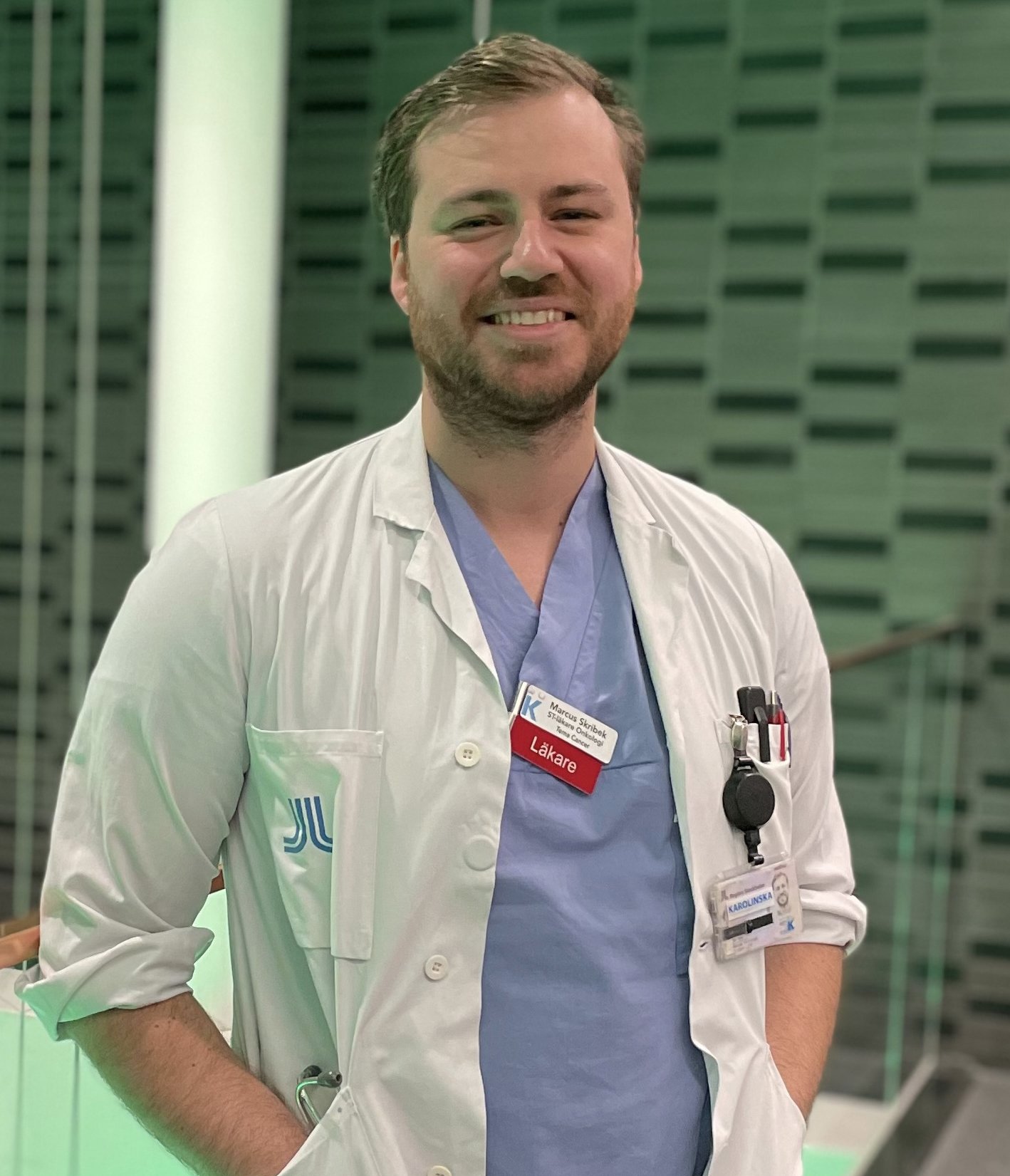New thesis on optimizing treatment for lung cancer patients

Hi Marcus Skribek, doctoral student at the Department of Oncology-Pathology. On November 8 you will defend your thesis ”Strategies for optimizing immune checkpoint inhibition in advanced non-small cell lung cancer”.

What is the main focus of the thesis?
"My thesis focuses on improving treatment strategies for patients with advanced lung cancer, one of the most common and deadliest forms of cancer. By optimizing the use of immunotherapy – a groundbreaking treatment that has revolutionized cancer care and was awarded the Nobel Prize in Medicine in 2018 – I explore how we can refine treatment outcomes, especially for patients with brain metastases, who previously had very limited options.
The goal of my research is not only to extend the lives of these patients but also to improve their quality of life through more personalized treatment methods. I hope that the insights we gather can open new doors in cancer care and ensure that more patients benefit from immunotherapy, even in the most advanced stages of the disease."
Which are the most important results?
"I have specifically focused on patients with brain metastases – a group that has often lacked effective treatment options and has been excluded from many studies. My research shows that immunotherapy can lead to significant treatment responses even for these severely ill patients, creating new hope where there previously was none.
We have also observed that steroids, which were previously thought to reduce the effectiveness of immunotherapy, can actually be used without compromising treatment outcomes under the right clinical conditions. This has already led to improved treatment options for many patients.
In addition, we have developed tools that help doctors identify which patients will benefit the most from the treatment. These tools represent a significant step towards more tailored and effective treatments, and it is incredibly rewarding to know that our research can turn despair into hope for so many. Every time a patient receives a new treatment option, I am reminded of why this research is so important."
How can this new knowledge contribute to the improvement of people’s health?
"The new knowledge has the potential to change the lives of many patients with advanced lung cancer and brain metastases. By optimizing the use of immunotherapy, we have shown that even the most vulnerable patients can achieve significant improvements in their treatment responses. This is not just about extending life but also about offering a higher quality of life to those battling one of the toughest diagnoses.
Being able to give these patients more years with their loved ones and offer a life with less pain and more hope drives me forward in my work. Every new discovery and every advancement brings us closer to a future where fewer lives are lost and more people can live meaningful lives despite a cancer diagnosis. These insights demonstrate the true power of research – to transform despair into hope and suffering into quality of life."
What’s in the future for you?
"Going forward, my goal is not only to improve treatment for lung cancer patients but also to redefine how we view the care and treatment of all those living with this devastating disease – both globally and for future generations. I want to create a future where new insights and innovations provide every patient with the best possible conditions for a better life, regardless of diagnosis.
As a specialist in clinical oncology and a researcher, I am determined to continue my research to improve the quality of life for cancer patients, both nationally and globally. I look forward to participating in new groundbreaking research projects that can impact how we approach the treatment of complex diseases. For me, this is more than a scientific career – it is a personal journey, a deep calling, to change lives and give hope to those who need it most."
